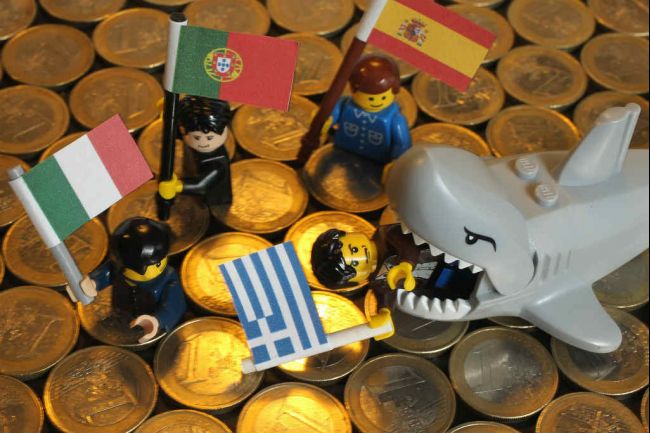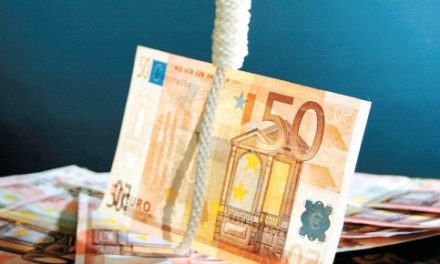‘Grexit’ would weaken German and French banks and cost Berlin up to €77bn, and IMF a slug of its loan
By Phillip Inman, Guardian
Eurozone officials have spent the last four years building a financial buffer big enough to cope with a Greek exit. Ever since 2010 when Athens found itself unable to refinance its foreign loans and asked for a €120bn bailout, Brussels has sought to prevent another collapse and repeat of the crisis that swamped all ideas of recovery.
Today a Grexit would weaken German and French banks, and cost the German government up to €77bn and the International Monetary Fund a slug of its loans, but would be unlikely to frighten global markets or undermine the 14-year-old currency bloc.
In the last few weeks eurozone government bonds, which reflect the stability of a country’s finances, have remained steady while the leftist Syriza party’s polling has jumped.
In part, analysts say the €440bn European Financial Stability Facility (EFSF) amassed by Brussels is a big enough buffer. They have also scrutinised Syriza’s stance and reasoned that leader, Alex Tsipras, has given himself enough wriggle room to soften his previously hardline stance.
Still, there are fears that the binding that holds the eurozone together will be loosened, especially if Greece is allowed to default while remaining inside the zone.
The Bruegal Institute in Brussels is not the only thinktank to believe the estimated €250bn cost of a Grexit, while covered by the bailout funds, would cripple the eurozone and delay recovery for a decade.
Zsolt Darvas, one of the institute’s economists said: “I am convinced that Greece will need new funding from European partners, but its volume should be a few dozen billion euros, say €20bn-€30bn.
“Compare the inconveniences of these additional funds to the losses on the existing approximate €250bn share of official lenders in Greek public debt (Greek Loan Facility, EFSF loans, International Monetary Fund loans, money owed to the European Central Bank and national central bank holdings of Greek bonds) and on various kinds of European Central Bank claims on Greece in the case of a Grexit.”
Darvas said Greek loans can be extended to help Athens delay payments and use the money for reconstruction.
Joachim Poss, the German Social Democratic party’s deputy finance spokesman in the German parliament, said earlier this month the total was unaffordable. “Europe as a whole would pick up a very, very large bill and Germany the biggest part – let there be no mistake,” he said, concluding: “Europe can’t afford a Greek exit.”
The Ifo Munich-based thinktank has chalked up losses to Germany of at least €77bn. President Hans-Werner Sinn, known for backing German business interests, said it was folly to be blackmailed by Tsipras and that it would be better to let Greece depart. He said the losses from a Grexit would be less than continued membership with endless loans and debt forgiveness, though his preference was for a debt conference that found a way to delay payments.
Tsipras wants Athens to be forgiven some debts to cut the cost of repayments. This would allow Greece a partial default while staying inside the euro. Brussels has said this is naive politics, if only because Ireland and Portugal, which also have mountainous debts with the EU, would ask for the same. A default that involves leaving the eurozone could wipe out 100% of Athens’ debts with EU governments, but still leave sizeable private sector debts without any access to funds other than taxes paid to the Greek exchequer.
An end to austerity is the promise Syriza offers voters, either through debt forgiveness inside the euro or a debt free life outside. However, the ailing Greek economy, which is suffering from an unemployment level twice as high as it was in May 2010 and industrial production 30% below to its pre-crisis level, has few ways to generate income without the EU’s support.
A newly minted drachma would be low enough to attract holidaymakers, but without the investment in new hotels, the industry could barely cope. Likewise, investment in new industries would be unlikely unless Tsipras can honour his pledge to root out corruption, something that has eluded the right-wing New Democracy party. Maybe the IMF would offer its support, but like the EU’s funds, the IMF’s come with more austerity.



















